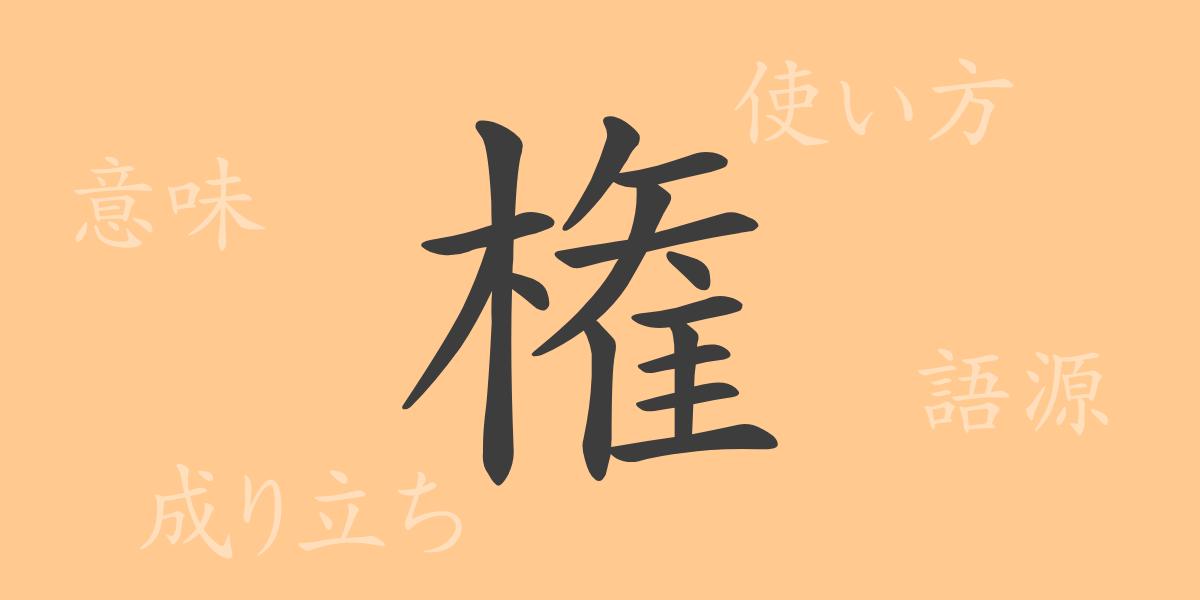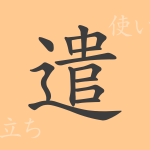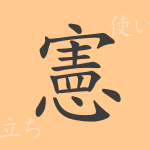The power of a single kanji character extends beyond its shape and sound, reflecting deep history and culture. The Japanese common kanji “権(けん, ken)” is no exception. This article delves into the origins of “権(けん, ken),” its modern usage, readings, stroke count, and radicals, exploring the complexity and richness of the Japanese language. Additionally, we will look at idioms and proverbs that use “権(けん, ken)” to understand how this character is embedded in the lives and thoughts of Japanese people.
Origins of 権(けん, ken)
The kanji “権(けん, ken)” is derived from ancient Chinese characters, combining “木(き, ki)” representing a tree, and “力(ちから, chikara)” symbolizing strength. This combination signifies the power to cut down trees, metaphorically representing “authority” or “power.” Over time, “権(けん, ken)” evolved to encompass not only authority but also rights and influence, being used to represent various power-related concepts.
Meanings and Usage of 権(けん, ken)
In modern Japanese, “権(けん, ken)” is primarily used to mean “rights” or “authority.” Rights refer to legal or moral entitlements that individuals or groups can claim, while authority denotes the power or influence to enforce one’s will over others. Additionally, “権(けん, ken)” is used to signify “prestige,” indicating expertise or credibility in specific fields, thus playing an important role in various contexts.
Readings, Stroke Count, and Radical of 権(けん, ken)
The kanji “権(けん, ken)” has multiple readings and meanings as indicated by its form and pronunciation.
- Readings: On’yomi (音読み): “ケン(けん, ken)”; Kun’yomi (訓読み): None
- Stroke count: 15 strokes
- Radical: The radical is “木(きへん, kihon)” (tree), indicating its classification among characters related to wood or trees.
Idioms, Proverbs, and Phrases Using 権(けん, ken)
There are many idioms, proverbs, and phrases that include the kanji “権(けん, ken).” For example, “権力(けんりょく, kenryoku)” refers to political power or influence, “権威(けんい, ken’i)” signifies a position of respect or authority, and “人権(じんけん, jinken)” means human rights. These terms are frequently used in daily conversation, law, and business. Additionally, the phrase “権を振るう(けんをふるう, ken o furuu)” means to exercise authority, commonly seen in various social contexts.
Conclusion About 権(けん, ken)
The kanji “権(けん, ken)” symbolizes power and rights, as reflected in its form and history. It plays a central role in Japanese law, politics, and culture, appearing in many idioms, proverbs, and phrases. Understanding this kanji not only deepens one’s knowledge of the Japanese language but also provides insight into Japanese societal values and structures. This article aims to help readers grasp the multifaceted meanings and uses of “権(けん, ken),” enriching their appreciation of Japanese culture and language.

























